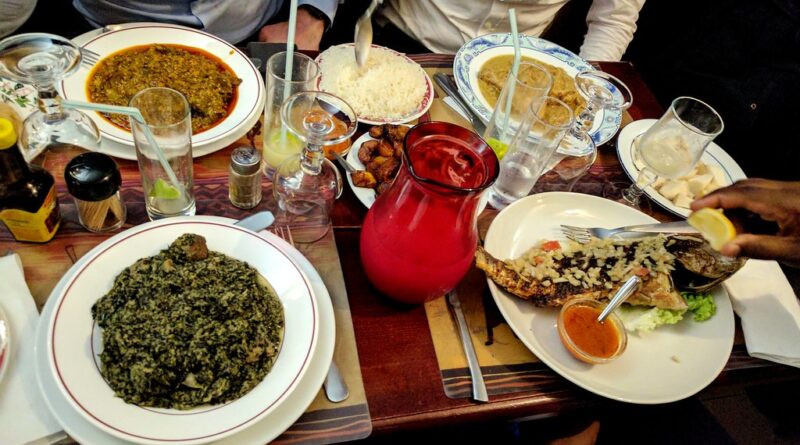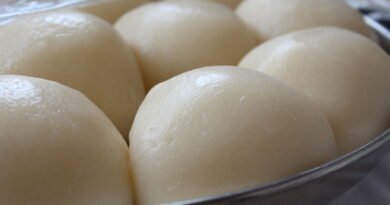Ndolé
Ndolé: Exploring the Heart and Soul of Cameroonian Cuisine
In the vibrant tapestry of African cuisine, Ndolé emerges as a culinary gem, cherished for its rich flavors, cultural significance, and communal spirit. Originating from the lush landscapes of Cameroon, Ndolé represents more than just a dish—it embodies centuries of tradition, innovation, and culinary artistry. Join us on a gastronomic journey as we delve deep into the essence of Ndolé, uncovering its roots, preparation methods, nutritional benefits, and enduring legacy.
Origins and Cultural Heritage:
Ndolé traces its origins to the Duala people of Cameroon, who have nurtured this culinary tradition for generations. The dish is deeply intertwined with Cameroonian culture, serving as a symbol of hospitality, celebration, and unity within communities. Its name, derived from the indigenous Bantu languages, evokes images of abundance and festivity.
Historically, Ndolé was reserved for special occasions, such as weddings, festivals, and family gatherings. Its preparation involved meticulous attention to detail, with women in the community coming together to harvest, clean, and cook the ingredients. Passed down through oral tradition, the art of making Ndolé has been preserved and cherished, ensuring its continued presence in Cameroonian kitchens.
Culinary Preparation:
At its core, Ndolé is a hearty stew featuring bitterleaf greens, groundnuts (peanuts), and protein, typically in the form of fish, meat, or shrimp. The dish is a harmonious fusion of flavors and textures, with each ingredient contributing to its distinctive taste profile.
The process of making Ndolé begins with the preparation of the bitterleaf greens, which are harvested from the wild or sourced from local markets. These greens are then washed, chopped, and blanched to reduce their bitterness. Meanwhile, groundnuts are roasted, ground into a paste, and incorporated into the stew to impart a creamy richness.
The protein component of Ndolé varies depending on regional preferences and availability. In coastal areas, fresh fish or seafood may take center stage, while inland regions may feature meats like beef, chicken, or goat. Regardless of the protein choice, Ndolé is a versatile dish that adapts to the seasonal bounty of the land.
Nutritional Benefits:
Beyond its exquisite taste, Ndolé offers a plethora of nutritional benefits, making it a wholesome and nourishing meal choice. Bitterleaf greens, the star ingredient of Ndolé, are rich in vitamins A, C, and K, as well as essential minerals like calcium and iron. These greens are prized for their detoxifying properties and digestive benefits, promoting overall health and well-being.
Groundnuts, another key component of Ndolé, are a nutritional powerhouse, packed with protein, healthy fats, and essential nutrients. They provide sustained energy, support muscle growth and repair, and contribute to heart health and cognitive function. Combined with the protein from fish or meat, Ndolé becomes a balanced meal that satisfies both hunger and nutritional needs.
Cultural Significance and Community Bonding:
In Cameroonian culture, Ndolé transcends its culinary role to become a symbol of cultural identity and communal bonding. The preparation and sharing of Ndolé foster a sense of belonging and togetherness, strengthening familial ties and social connections.
Often prepared during festive occasions and family gatherings, Ndolé brings people together around the communal table, where stories are shared, laughter echoes, and memories are made. Its presence signifies abundance, hospitality, and generosity, as guests are welcomed with open arms and warm bowls of stew.
Global Influence and Adaptations:
In recent years, Ndolé has gained recognition beyond the borders of Cameroon, thanks to the global interest in African cuisine and culinary diversity. Restaurants around the world are incorporating Ndolé into their menus, introducing diners to its unique flavors and cultural heritage.
Moreover, chefs and home cooks are experimenting with variations of Ndolé, incorporating local ingredients and putting a modern twist on the traditional recipe. From vegan versions featuring plant-based proteins to fusion interpretations blending international flavors, Ndolé continues to evolve while staying true to its roots.
Conclusion:
In conclusion, Ndolé stands as a testament to the richness and diversity of Cameroonian cuisine, celebrating the bounty of the land and the ingenuity of its people. More than just a dish, Ndolé embodies the spirit of resilience, creativity, and community that defines African culinary traditions.
As we savor each spoonful of Ndolé, let us not only delight in its flavors but also honor the cultural heritage and ancestral wisdom woven into its preparation. In a world where food has the power to unite and uplift, Ndolé serves as a reminder of the bonds that connect us all, transcending borders and cultures with its irresistible charm.



